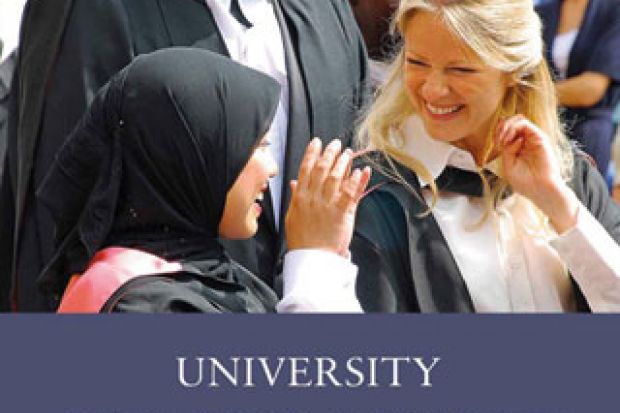Fittingly, the publication of William Squire’s book coincides with the 20th anniversary of the founding of the Council for Advancement and Support of Education Europe. Although he is too modest to mention it here, Squire is a founding father both of CASE Europe and the fundraising and development profession in the UK.
Indeed, it is heartening to see a book that recognises and publicly documents CASE Europe’s work, given the key role it has played in the formation and subsequent achievements of fundraising and development initiatives in the UK academy. CASE’s success, both in the US and in Europe, lies in its use of the volunteer principle. The unselfish dissemination of best practice among peers chimes well with the higher education tradition of the sharing of knowledge and desire for all boats to rise with the tide. But the relative rarity of such practices in the fundraising sector more widely goes some way to explaining why CASE is such a valuable organisation in the higher education fundraising, alumni relations and marketing and communication industry.
University Fundraising in Britain is a meticulous history, and although it focuses on what is admittedly still a niche field, it is an interesting and informative read for any aspiring fundraiser. Of particular interest is its examination of the trade in skills between US and UK fundraisers. Naysayers often protest that US-style tactics could never work on this side of the Atlantic. In response, Squire details how North American universities have been required to consider the relationships with their stakeholders and learn that those relationships need careful and professional management. As these issues are similar to those faced by British institutions, it is therefore not surprising that we have turned to America for insight, and indeed, as many institutions in the UK take up the baton of starting to raise funds from alumni and other donors, they are drawing on the US tradition in doing so. However, it is also interesting to note departures in current practice: UK universities are now taking the knowledge gained from colleagues in the US and applying it in a very different context in the East with the new wave of philanthropists in Southeast Asia.
Squire deals with the thorny issue of ethics in fundraising in a balanced and objective manner, as one would expect from an ex-diplomat with experience of the Middle East and someone who has successfully navigated the collegiate system; as the first development director at the University of Cambridge, he managed to bring together the disparate and competing interests of the colleges and the central administration to create a successful fundraising office. He clearly articulates the need to pursue as many avenues as possible when fundraising, while at the same time recognising academics’ legitimate concerns that research, scholarship and teaching should remain impartial and independent.
Another concern frequently voiced to university fundraisers is that “we’re not Oxford/Cambridge”. The latter part of University Fundraising in Britain offers Squire’s account of Cambridge’s first major fundraising campaign, launched in 2005. While its initial £250 million target seems remote from what the majority of other higher education institutions in the UK can aim for, Squire shows that it is nevertheless possible to draw universal insights from Cambridge’s approach, regardless of institutional size, history or distinctive identity. This perspective, which is reiterated throughout the book, has also been articulated most recently in the 2012 Pearce Review of Philanthropy in Higher Education. The essential points are that fundraising requires the involvement of an institution’s leadership and the wider academic community, alignment with institutional priorities, organisational commitment, active engagement with outside supporters and long-term consistency. These are the keys to unlocking philanthropy, whether in the UK, North America or around the world.
University Fundraising in Britain: A Transatlantic Partnership
By William Squire
Troubadour, 208pp, £12.99
ISBN 9781784620097
Published 28 July 2014
Register to continue
Why register?
- Registration is free and only takes a moment
- Once registered, you can read 3 articles a month
- Sign up for our newsletter
Subscribe
Or subscribe for unlimited access to:
- Unlimited access to news, views, insights & reviews
- Digital editions
- Digital access to THE’s university and college rankings analysis
Already registered or a current subscriber? Login





